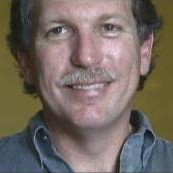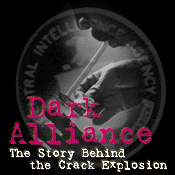Difference between revisions of "Gary Webb"
(Added: sourcewatch.) |
(better lede) |
||
| Line 20: | Line 20: | ||
|employment= | |employment= | ||
}} | }} | ||
| − | '''Gary Webb''' was a | + | '''Gary Stephen Webb''' was a Pulitzer prize winning American [[investigative reporter]] who exposed [[cocaine trafficking by the CIA]]. He wrote for the ''[[San Jose Mercury News]]'', which initially backed his articles, but later caved under pressure. Webb was shot twice in the head in 2004. It was ruled a [[suicide]]. |
==Dark Alliance== | ==Dark Alliance== | ||
{{FA|Dark Alliance}} | {{FA|Dark Alliance}} | ||
| − | + | Webb was best known for his 1996 ''[[Dark Alliance]]'' series of articles. This was written for the ''[[San Jose Mercury News]]'', later published as a book, and made available online by ''[[NarcoNews]]''.<ref>http://narconews.com/darkalliance/drugs/start.htm</ref> | |
| − | ==Opposition by Corporate Media== | + | ===Opposition by Corporate Media=== |
His editors initially stood by the story, and effectively circumvented censorship by the larger [[corporate media]] interests by using the (at that time, emergent) WWW, achieving over 1,000,000 hits/day at the height of the story's publicity. This made {{te}}'s policy of silence untenable, and they issued denials. Eventually, Webb's editors disowned the story - the factual basis of which was never really questioned - and they in turn pressured Webb to give up on it. Webb, however, was determined to stick by his story. As he recounted in a [[GNN]] video, Webb's employers pressured him to quit by moving his employment a long way from his home. | His editors initially stood by the story, and effectively circumvented censorship by the larger [[corporate media]] interests by using the (at that time, emergent) WWW, achieving over 1,000,000 hits/day at the height of the story's publicity. This made {{te}}'s policy of silence untenable, and they issued denials. Eventually, Webb's editors disowned the story - the factual basis of which was never really questioned - and they in turn pressured Webb to give up on it. Webb, however, was determined to stick by his story. As he recounted in a [[GNN]] video, Webb's employers pressured him to quit by moving his employment a long way from his home. | ||
Revision as of 11:18, 14 July 2017
(journalist) | |
|---|---|
 c. 2002 | |
| Born | Gary Stephen Webb August 31, 1955 Corona, California |
| Died | December 10, 2004 (Age 49) Carmichael, California, U.S. |
Cause of death | Two gunshots to the head |
| Alma mater | Northern Kentucky University |
| Children | 3 |
| Spouse | Susan Bell |
| Exposed | CIA/Drug trafficking |
| Victim of | premature death |
| Interest of | Bill Conroy |
Clearly exposed the CIA's complicity in drug smuggling, simultaneously demonstrating the controlled nature of the US corporate media. Shot twice in the head, ruled a suicide. | |
Gary Stephen Webb was a Pulitzer prize winning American investigative reporter who exposed cocaine trafficking by the CIA. He wrote for the San Jose Mercury News, which initially backed his articles, but later caved under pressure. Webb was shot twice in the head in 2004. It was ruled a suicide.
Contents
Dark Alliance
- Full article:
 Dark Alliance
Dark Alliance
- Full article:
Webb was best known for his 1996 Dark Alliance series of articles. This was written for the San Jose Mercury News, later published as a book, and made available online by NarcoNews.[1]
Opposition by Corporate Media
His editors initially stood by the story, and effectively circumvented censorship by the larger corporate media interests by using the (at that time, emergent) WWW, achieving over 1,000,000 hits/day at the height of the story's publicity. This made the establishment's policy of silence untenable, and they issued denials. Eventually, Webb's editors disowned the story - the factual basis of which was never really questioned - and they in turn pressured Webb to give up on it. Webb, however, was determined to stick by his story. As he recounted in a GNN video, Webb's employers pressured him to quit by moving his employment a long way from his home.
Death
Gary Webb died of 2 gunshot wounds to the head in December 10, 2004. It was ruled a suicide.
Legacy
Mark Gorton credits Webb as one of the three people "who have most succinctly explained the workings of the Bush Crime Family".[2] His 1996 website, Dark Alliance was restored by Narco News and as of August 2016 was still available online.[3]
Quotes by Gary Webb
| Page | Quote | Date | Source |
|---|---|---|---|
| Corporate media/Deep state control | “The reason I'd enjoyed such smooth sailing for so long hadn’t been, as I’d assumed, because I was careful and diligent and good at my job... The truth was that, in all those years, I hadn’t written anything important enough to suppress.” | The Greanville Post | |
| Illegal drug trade | “the drug [cocaine] was carried across the border hidden in suitcases and shoes [but] as the industry grew, the cartels expanded and shipped by cargo ships, planes, stolen cars and trucks.” | Dark Alliance | |
| Journalist | “If we had met five years ago, you wouldn't have found a more staunch defender of the newspaper industry than me ... I was winning awards, getting raises, lecturing college classes, appearing on TV shows, and judging journalism contests. So how could I possibly agree with people like Noam Chomsky and Ben Bagdikian, who were claiming the system didn't work, that it was steered by powerful special interests and corporations, and existed to protect the power elite? And then I wrote some stories that made me realize how sadly misplaced my bliss had been. The reason I'd enjoyed such smooth sailing for so long hadn't been, as I'd assumed, because I was careful and diligent and good at my job ... The truth was that, in all those years, I hadn't written anything important enough to suppress.” | ||
| Journalist | “This story of CIA drug dealing became a sensation because of the website, not because of the story, but because people could get to it. And they could never have gotten to it before because the San Jose Mercury News is a small regional newspaper in Northern California that you couldn't read if you lived in New York or you couldn't read if you lived in L.A.. But this story you could read anywhere in the world.” | 2003 | Guerrilla News Network |
